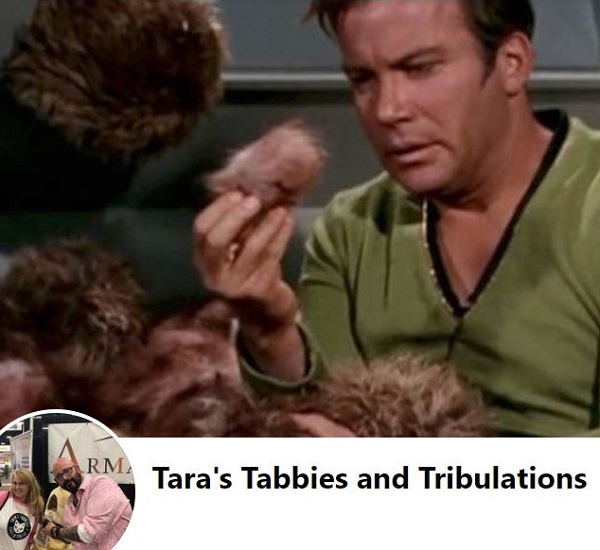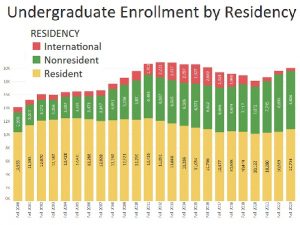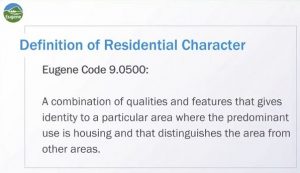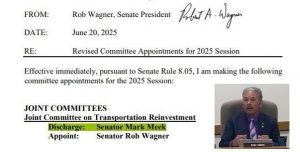Public warns council about proposed cuts to animal services
9 min read
At the city council meeting May 8, public comment about proposed budget cuts for animal services. From Greenhill Humane Society, Cary Lieberman.
[00:00:09] Cary Lieberman: I’m Cary Lieberman from Ward 2. For over four decades, Eugene has had a comprehensive animal welfare program in place, ensuring the safety and wellbeing of both our beloved pets and ourselves.
[00:00:21] However, as you’ve heard, the future of this program is at risk due to the proposed budget cuts. These proposed cuts to end the animal welfare program are disproportionate to any other city program that’s being considered. The draft budget includes the actual statistics: 42% overall cuts to the program, 57% cut to the contract with Greenhill for animal sheltering.
[00:00:46] This will result in the elimination of one animal welfare officer, as stated in the budget, and a reduction in field coverage from seven days a week to four. It will also leave over 700 city of Eugene animals without safe shelter annually. That’s roughly 57% of what we would annually see.
[00:01:02] The impact of these cuts on our community would be devastating. Without proper shelter, hundreds of stray dogs and cats will roam our streets, causing danger to themselves and others. Many of these animals will be hit by cars. Some may even attack other animals or people. This is unacceptable.
[00:01:19] The city’s initial partnership with Greenhill Humane Society in 2012 was successful in achieving cost savings, and the investment has been further leveraged by the generosity of volunteers and donors. The public-private partnership has enabled the city’s annual financial investment to go three to four times further than if the city attempted to do it themselves.
[00:01:40] Animal services are a public safety concern, and as such should come in part from public dollars. The public expects these services in our community and expects that the services are paid for through the tax dollars and fees they already pay. It is not acceptable to cut the city’s funding to this program, to disregard the investment being made by donors and volunteers, just to fund other priorities.
[00:02:05] If the proposed funding cuts are passed, it will diminish the health and safety of both animals and humans in our community. And it’ll break the trust with a community of philanthropists, volunteers, community members, and other nonprofit organizations.
[00:02:20] I urge you to address this concern at the upcoming budget meeting this Wednesday.
[00:02:25] City of Eugene: Next we’ll hear from Diane Bolte-Silverman.
[00:02:28] Diane Bolte-Silverman: I’m on the board of Stop Pet Overpopulation Today, which is a small local nonprofit that helps fund dog spay-neuter surgeries for low- and no-income people.
[00:02:37] I also started volunteering with dogs at Lane County Animal Services in 2008 and have continued to do that and currently volunteer with the same at Greenhill.
[00:02:48] And I believe that both aspects of the city’s plan to remove one animal control officer position in Eugene and to cut funding to Greenhill are shortsighted, inhumane, and adversely affect public safety, in addition to other issues.
[00:03:02] It is the city’s responsibility to provide animal welfare services to our city, and it is not the responsibility of nonprofits that are already overwhelmed and working on shoestring budgets to do so, or for the general public to try to deal with sometimes dangerous situations.
[00:03:21] Cutting the number of animal welfare officers in half to reduce coverage to four days per week simply doesn’t work. What is going to happen when an animal is in need? When a resident is trying to help and doesn’t know what they’re doing and gets bitten? When someone rescues a cat, rabbit, dog, ferret, bird, and no one in the city is available to help?
[00:03:41] We can’t expect the police who are not properly trained and who are handling their own work to do so. So what options will there be with no animal welfare officer for half the week?
[00:03:52] And cutting funds to Greenhill, the only shelter in our area that can handle all types of abandoned animals, will also have a major negative impact on our community. If you cut funds again, what will happen to stray cats, rabbits, ducks, chickens, goats, all the other species that are found by residents?
[00:04:13] I mean, is the plan to just let ’em run loose and allow ’em to multiply and become pests? Are they going to be killed? Are they going to be allowed to starve, be hit by cars, you know, anything? Greenhill has the facility and currently the staff and the expertise to care for all of these species and again, is really the only option for stray and abandoned animals in our community.
[00:04:36] The plan to cut the one position, the animal welfare control position, and severely cut funding for Greenhill simply doesn’t work.
[00:04:45] Emily Votaw: Hi, my name is Emily Votaw and I’m from Ward 8.
[00:04:49] The proposed 42% animal welfare cut and 57% cut to Greenhill is a very bad idea. Greenhill saves approximately 3,000 animals a year, and your proposed cuts will reduce that by 700.
[00:05:04] These spots are used for trap and release spay and neuter programs, approximately 500 last year, which helped control the feral cat population. This program is a key tool in helping protect our birds, but I’ll come back to that.
[00:05:18] Those 700 shelter spots will be used to hold lost animals until owners can be found, rescue stray and injured animals, and provide emergency boarding for crisis situations. For example, domestic violence situations and medical emergencies.
[00:05:33] Your proposed cuts will also eliminate one animal welfare officer, which will leave two officers for a city of about 171,000 people and 40,000 dogs. Losing that staff will require police, untrained in animal rescue, to pick up the slack.
[00:05:50] The practical effects of having poor animal welfare in a city can result in short-term and long-term irreversible damage to the environment and the economy.
[00:06:00] These are issues that will be more expensive to deal with and our voters will notice. Stray animals breed unchecked. Cats can give birth to approximately 180 kittens in their lifetime. Stray and feral cats are doing damage to our bird population.
[00:06:15] Birds help control insect pests, protecting our trees and our crops. They also provide seed dispersal. According to the Indiana University, Purdue, 92% of woody tree species are dispersed by birds. This includes timber, edible and medicinal plants. They are also responsible for pollinating 3% to 5% of some 1,500 economically important crops and medicinal plants.
[00:06:41] We need our birds and to keep them safe, we need to control the feral and stray cat population, not increase it through budget cuts. That is long-lasting irreversible damage.
[00:06:52] We have an estimated 40,000 stray or feral cats in Eugene. Large stray populations also spread diseases that can be spread to our pests and also to us. Some diseases that we can catch from animals are rabies, roundworm, scabies, ringworm, (and) toxoplasmosis…
[00:07:08] Tara Nagelhaut: Tara Nagelhaut, South River Road area. I’m the owner of Emerald Valley Real Estate, Hometown Pets and Pet Time, as well as board member of Tara’s Tabbies and Tribulations, as well as Feline Good Animal Rescue.
[00:07:19] This morning I started out my day in the basement with my favorite cat, Laura, she’s my soulmate. Few hours later, the next cat that was available for me to touch was a dead four-week-old kitten, and that was super fun. Three hours later, it was three little feral kittens born in some random shed that somebody had me come get.
[00:07:36] That’s what we do every day. Right now there are more cats in my care than I can even count. I’m guessing I have about 50 or so. They are in various foster homes, my home cattery, and in my stores awaiting adoption.
[00:07:46] The state has put additional burdens on rescues by requiring us to register, have our homes and our paperwork inspected, and pay them money for the only purpose of supporting their program. You’ve made the requirements to receive funding for rescue so completely challenging that the only entity capable of handling that is Greenhill.
[00:08:04] The community has an idea that Greenhill takes basically any cat that is brought in and that they are a no-kill shelter. If only the public knew the truth. They don’t and they aren’t. But at this moment, they’re the only option our community has, because of the requirements that you have put on that.
[00:08:16] If you choose to go ahead and cut this budget, you’ll be sentencing even more cats to death. Did you know private rescues have to hold an animal for 90 days and Greenhill has to only hold for three to five (days), depending on the circumstances? We’re already at a disadvantage.
[00:08:28] My husband and I have fixed over 700 cats, 90% of which was done with our own money.
[00:08:32] I believe it should be a requirement for each one of you to spend 12 hours with any one of us people here that are in private rescue and go through the daily rollercoaster of hell that we have to do before you should be allowed to vote on this. (Amen!)
[00:08:44] You do not know what we’re doing. You have a group of incredibly passionate and dedicated people who are willing to step up and do what needs to be done to help these cats, but we need you to provide the stairs for us to step up on.
[00:08:56] Misha English: My name is Misha English. I am the president of Willamette Animal Guild (WAG). We are a low-cost, high-volume, high-quality spay-neuter clinic that serves Eugene as well as all of Lane County. And we are coming up on our 75,000th spay-neuter service this year.
[00:09:12] I’m here to address the proposed budget for animal services on behalf of our organization and many other animal partners that are sitting behind me here in the community.
[00:09:20] Over a decade ago, Eugene (my understanding) budgeted nearly $1 million dollars a year for animal care. Currently, the animal budget for Eugene is less than $500,000. And now the recent budget proposal would slash that amount to just over $200,000, taking animal control down to four days a week and taking away from its citizenry a safe place to bring stray cats.
[00:09:45] While it’s true that some city sectors are going to be experiencing a 10% cut, it’s proposed that animal services eat 56%. Why the massive disparity? And the wholesale elimination of stray cat funding. City of Springfield residents will still be able to bring stray cats into Green Hill. Same with folks in unincorporated Lane County, but not citizens of Eugene. Why? Is it because the city of Eugene believes there isn’t a cat problem?
[00:10:13] If so, there are nearly 100 individuals and organizations doing feral cat work, trap-neuter-release in Eugene that would tell you differently. We all work tirelessly and without government funding addressing cat overpopulation in Eugene, and we are very concerned about the trickle-down effect that this new contract would have on cats and our work.
[00:10:34] Greenhill currently takes in roughly 575 stray cats per year from Eugene under the current contract. If these cats have nowhere to go, they will stay on the streets and eventually breed feral cats.
[00:10:45] The problem with the problem of feral overpopulation is the negative repercussions of defunding the fight are swift and exponential.
[00:10:56] Those 575 cats that Greenhill can no longer take in from the public will turn into 100,000 cats in just three years in Eugene. Even if half of them perish due to disease, the elements, or predators, Eugene should not take itself out of the fight against overpopulation of cats.
[00:11:15] Vanessa Ringgold: My name is Vanessa Ringgold. I am in Ward 6. I’m here to speak on behalf of restoring the animal welfare services budget. And frankly, it needs to be increased by three or four times to even begin to really make an impact on the problems that the animals in this communities are facing…
[00:11:32] Every day these people (at Greenhill) are doing their absolute best to help the animals in this community. And I think that they deserve our help because the rescuers are exhausted.
[00:11:44] The budget is expecting people like us to go and continue to self-fund because there’s a passion ’cause we believe it so deeply in the humane treatment of the animals in our community. And we’re exhausted, we can’t do it anymore. And so we are hoping that this community will step up and help fix this.
[00:12:01] And the first start is by helping to restore the budget for the animal welfare services.
[00:12:05] John Q: The city council is warned about potential consequences of budget cuts to Eugene’s animal services.



